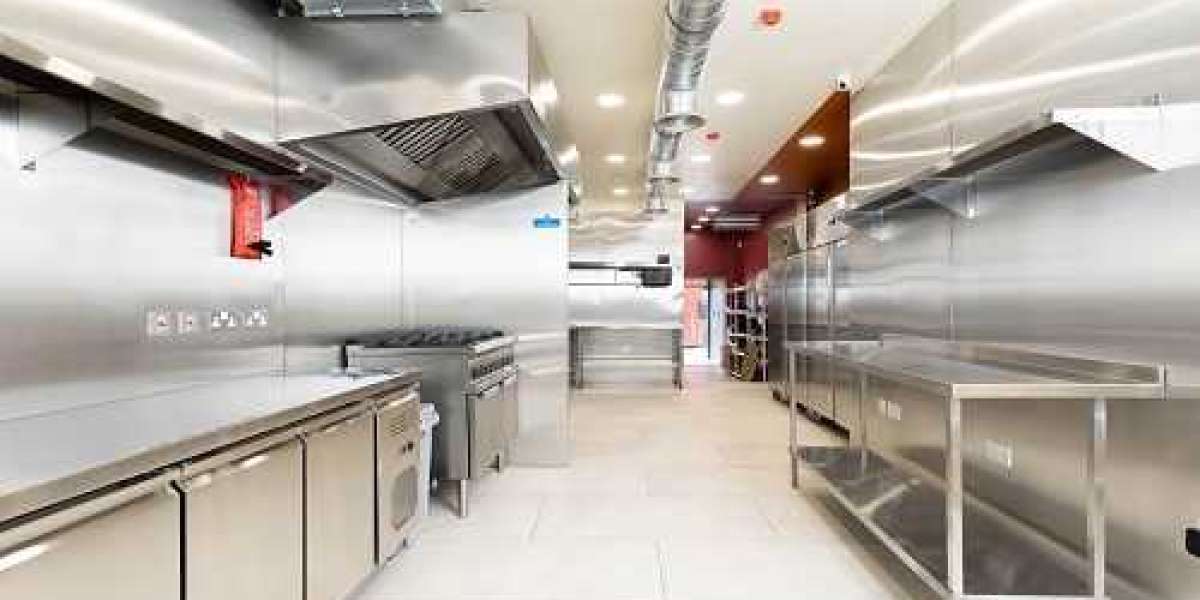Introduction
In recent years, the culinary landscape in London has undergone a significant transformation thanks to the emergence of a novel concept known as cloud kitchens. These innovative establishments have disrupted traditional dining norms and have paved the way for a new era of food delivery and consumption. In this article, we'll delve into the world of cloud kitchen london, exploring their origins, benefits, challenges, and the impact they've had on the city's food scene.
The Rise of Cloud Kitchens
Cloud kitchens, also referred to as ghost kitchens, virtual kitchens, or dark kitchens, are food production facilities designed exclusively for preparing food for delivery rather than offering dine-in services. This revolutionary concept gained prominence as on-demand food delivery services like Uber Eats, Deliveroo, and Just Eat became increasingly popular. Cloud kitchens leverage this demand by providing a streamlined and efficient solution for restaurants, chefs, and food entrepreneurs to serve customers without the need for a traditional brick-and-mortar setup.
Benefits of Cloud Kitchens
Reduced Overheads: One of the primary advantages of cloud kitchens is the elimination of high costs associated with maintaining a physical restaurant space. This includes expenses related to rent, interior décor, and utilities.
Enhanced Efficiency: Cloud kitchens are designed with operational efficiency in mind. Chefs and kitchen staff can focus solely on cooking and fulfilling orders, leading to quicker turnaround times and improved food quality.
Location Flexibility: Cloud kitchens are not restricted by location constraints. They can be strategically situated in areas with high demand, enabling businesses to cater to a broader customer base without worrying about prime real estate.
Experimentation and Innovation: Cloud kitchens provide a platform for culinary experimentation. Chefs and entrepreneurs can easily test new concepts and menu items, adapting to changing food trends and customer preferences.
Data-Driven Insights: Cloud kitchens are equipped with technology that enables data collection and analysis. This data can be used to gain insights into customer behavior, order patterns, and popular menu items, helping businesses make informed decisions.
Challenges and Considerations
While cloud kitchens offer numerous benefits, they also come with their fair share of challenges:
Brand Visibility: Without a physical storefront, cloud kitchens must rely heavily on digital marketing and branding efforts to establish a strong online presence and connect with customers.
Quality Control: Maintaining consistent food quality during delivery can be a challenge. Proper packaging and transportation methods are essential to ensure that the food arrives at customers' doorsteps in optimal condition.
Competition: The low barrier to entry in the cloud kitchen space can lead to increased competition. Standing out requires a unique value proposition, exceptional food quality, and efficient operations.
Dependency on Third-Party Apps: Cloud kitchens often rely on third-party delivery apps for order placement and delivery logistics. While this expands their reach, it also means sharing a portion of their profits with these platforms.
The Impact on London's Culinary Scene
Cloud kitchens have had a profound impact on London's culinary scene:
Diverse Cuisine Options: Cloud kitchens have enabled a broader range of cuisines to flourish, catering to the city's diverse population and allowing residents to explore flavors from around the world.
Empowering Entrepreneurs: Cloud kitchens have provided aspiring chefs and food entrepreneurs with a more accessible entry point into the industry, encouraging innovation and creativity.
Food Delivery Evolution: The rise of cloud kitchens has reshaped the food delivery landscape, making it an integral part of how Londoners experience dining. This trend has also influenced traditional restaurants to adopt delivery-focused strategies.
Urban Revitalization: By repurposing underutilized commercial spaces, cloud kitchens contribute to urban revitalization, breathing new life into areas that might have otherwise remained dormant.
Conclusion
Cloud kitchens have undoubtedly revolutionized the way Londoners experience dining and have reshaped the restaurant industry's dynamics. With their ability to adapt to changing consumer behaviors and preferences, these virtual kitchens have proven to be more than just a passing trend. As technology continues to advance and consumer expectations evolve, the cloud kitchen concept is likely to remain a prominent fixture in London's ever-evolving culinary landscape.








